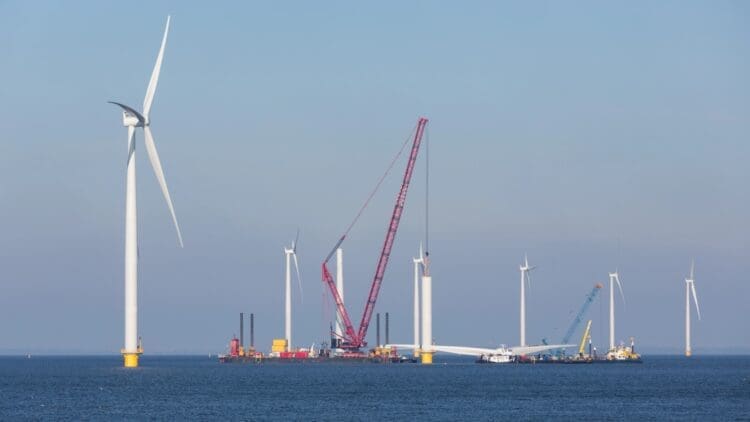An update from the Japanese government has flagged the offshore wind sector as a cause for concern in the nation’s energy sector. Japan is an exceedingly small nation, geographically speaking, and as such relies heavily on the offshore wind projects that dot the coasts. The land of the Rising Sun has seen a sharp decline in the forecast for the energy sector following some troubling reports of large companies pulling out of the sector while re-auctioning, and port strain further exacerbates the situation.
Japan has announced its plans to revise tender conditions and re-launch auctions
Japan is the home of the weird and wonderful. For generations, the Japanese people have shocked and amazed the rest of the world with their impeccable engineering excellence as well as their unshakeable reliance on their unique way of life. That unique perception of the world has led Japan to become a global leader in the wind power sector, which is now facing some tough times ahead.
The month of September saw the withdrawal of Mitsubishi Corporation from the sector, and also highlighted the challenges of Japan’s offshore wind business environment. The wind sector has seen several re-tendering efforts accelerated in Akita and Chiba, while a survey has revealed the disastrous effect that the withdrawal of the Mitsubishi Corporation has had.
The withdrawal of the Mitsubishi Corporation from the sector has impacted a vast number of local companies
A recent survey conducted in the Akita Prefecture reported that 72 local companies have felt the impact of the withdrawal of the Mitsubishi Corporation. The survey questioned 298 companies, of which 24% reported direct or indirect negative effects. Some even went as far as to state that they have already made advanced investments worth tens of billions of yen.
A vast majority of the companies affected had planned large projects and contracts as they anticipated stable demand from offshore wind development, which has now fallen away due to the low-bid auctions and pressure from the energy sector as a whole. Japan’s government has already begun preparing rule changes to extend sea-area usage periods and enable re-bidding; however, the situation underscores the fragility of the Japanese offshore wind sector overall.
Several Governors requested a meeting with METI Minister Muto
In that meeting, the governors emphasized the need for the national government to support the local businesses affected and requested a swift re-tendering of the Choshi and Akita offshore wind zones. Governor Toshihito Kumagai of Chiba urged the need to reform the tender framework to “ensure that projects can be completed without further withdrawals.”
During that meeting, the Minister stated that the government would finalize revisions to the framework by year-end. He added that the Japanese government is aiming to balance fairness with the urgent need to stabilize Japan’s offshore wind pipeline. Japan is not the only nation that needs to revisit the auctioning process, as several other nations have seen similar problems.
“The promotion of offshore wind power is vital for Japan to combat climate change, support energy independence, and increase its renewable energy supply.” – SSE Pacifico
Japan has a lot of work to do to reverse the adverse situation in the offshore wind sector
Japan relies on the crucial energy generation that offshore wind farms provide. Japanese citizens can take solace in the fact that their government does not share the sentiment of the United States. The American government, under Donald Trump, has been rolling back the progress being made in the wind power sector through court orders and directives. Japan is not a nation known for giving up; on the contrary, they are certain to find a solution to the current situation. Wind power will remain as much a part of the Japanese identity as karaoke.








